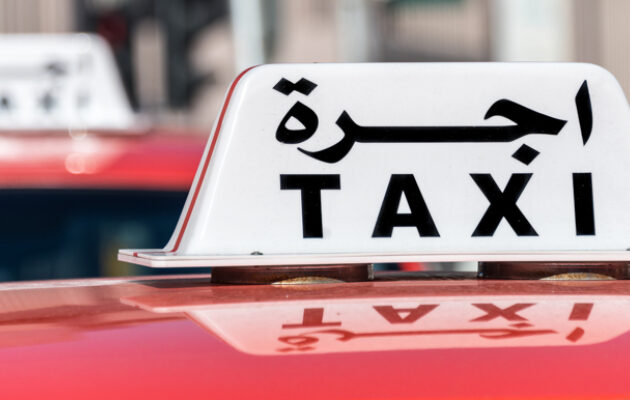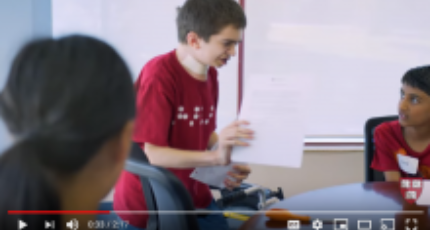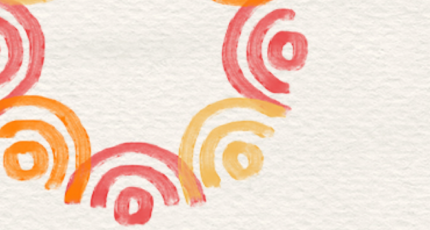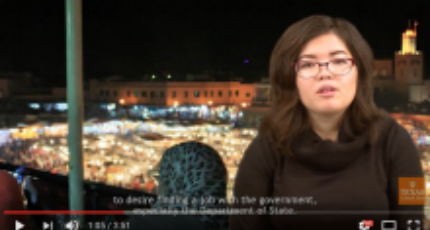Why Learn Arabic
Connect!
Arabic connects you to hundreds of millions of speakers around the globe
Arabic, counting its many varieties, is the fifth-most spoken language in the world, with over 200 million native speakers of Arabic and more than 400 million total speakers of the language.
Arabic connects you to Arab-American communities
In the United States, more than one million Americans speak Arabic at home, making it the fastest growing second language in the United States since 2010. These 1 million are among an estimated 3.6 million Americans total of Arab origin. These people make up diverse communities that represent different religions (primarily Christian and Muslim), countries of origin, and cultures, including first-generation immigrants and families who have been in the United States for generations.
Arabic connects you to adherents of the world’s third-largest religion
The Arabic language also holds special a significance for Muslims around the world who make up 23 percent of the world’s population. Although most of these 1.6 billion Muslims do not speak Arabic as a native language, many Muslims learn Arabic as a language of religious study and prayer.
Arabic is a bridge to international affairs and global politics
Arabic is one of the six official UN languages, and it is the official or co-official language of 27 countries. Developments in the Arabic-speaking world have played an outsize role in the news and diplomacy of recent events.
Distinguish Yourself!
Arabic will set you apart
By learning Arabic, you will distinguish yourself as a student who is willing to break the mold and try something different from the norm. This fact alone is enough to set yourself apart when applying for colleges, scholarships, and special programs.
Arabic will help you find a job
Knowledge of Arabic and familiarity with Arab culture will offer expanded access to careers in fields such as business, diplomacy, journalism, defense, public policy, health care and more. In careers that involve interaction with native Arabic speakers, knowing even a relatively small amount of Arabic can go a long way in increasing your credibility and ability to build strong relationships.
Arabic is a Critical Need Language
Because Arabic is a Critical Need Language, many branches of the U.S. Government highly value job applicants who know Arabic. Learning less commonly taught and critical-need languages such as Arabic helps prepare you to meet the needs of a globally oriented society in the 21st century.
Story: Graduate Employs Arabic Skills Working At a Renewable Water Tech Company
Story: Northwestern University Students Hone Their Arabic Skills While Volunteering at a Local Refugee Center
Widen Your World!
Arabic creates global citizens
In the 21st century, knowing a foreign language such as Arabic can help prepare you to become a globally engaged and connected citizen. As the world becomes more interconnected and interdependent, multicultural competency, international awareness and language fluency will be ever more important.
Arabic promotes understanding of diverse cultural perspectives
Learning the Arabic language and the cultures linked with it can expose you to a diverse range of perspectives and opinions that would otherwise be unavailable. Learning about other cultures can help you in understanding your own culture and expressing your own perspective on the world.
Learning Arabic promotes understanding
Learners of a second language develop a more positive attitude towards the target language and speakers of that language. Muslim-Americans—a category of people often conflated with Arab-Americans—are exposed to a disproportionate number of the hate crimes in the United States: more than 14 percent of hate crimes in 2013 targeted Muslims despite the fact that Muslims make up less than one percent of the population. Learning the Arabic language and accessing Arab culture in all of its diversity can help increase mutual understanding and combat prejudice.
Arabic opens a world of culture
Learning Arabic exposes you to a universe of art, culture and heritage from Arab countries. The wide diversity of Arab cultural products, ranging from deep-rooted traditions (such as calligraphy and geometric design) to vibrant contemporary forms (such as popular music and video activism) will enrich your understanding of the world.
Build Your Skills!
Learning languages makes you perform better in school
Students who study a second language demonstrate improved academic performance in a variety of fields and by a variety of measures.
Learning languages can improve cognitive abilities
Learning languages and a bilingual environment help improve cognitive abilities, especially at a young age.
Learning Arabic can expand your thinking
The Arabic alphabet is phonetic, with each letter representing a single sound, yet mastering it will require you to think in new ways about sounds and how they combine to form words. The structure of Arabic words is logical and yet very different from the European languages that are usually studied in schools. The process of learning Arabic—in and of itself—will require critical thinking and creativity.
Story: University of Mississippi Junior Experiences Morocco During Arabic Language Flagship Program
Story: Penn State Education & Public Policy Major Learns about Iraqi Culture through International Organization
Adapted from "I Speak Arabic," a campaign by Qatar Foundation International. Ideas and some content for this page were drawn from a report from the Chicago Council on Global Affairs about teaching Arabic in Chicago, and inspiration for this page was drawn from the Japan Foundation of Los Angeles’s “Speak Japan” website.
Arabic Scholarships and Grants
Critical Language Scholarship (CLS) Program – Arabic
Run by the U.S. Department of State, the CLS Program is a fully funded overseas summer immersion program promoting the study of critical languages, including Arabic.
Ibn Battuta Merit Scholarships
The Qalam Center offers multiple full and partial scholarships for students to study Arabic at their Morocco-based institution.
NAAAEA National Scholarships
The National Arab American Association of Engineers and Architects offers an annual monetary award to member students in the fields of Engineering, Architecture, and Computer Science.
National Security Language Initiative for Youth (NSLI-Y) Program (+ high school)
Sponsored by the U.S. Department of State, the NSLI-Y program offers high-school students and recent graduates merit-based scholarships for overseas immersion opportunities to study less commonly taught languages, including Arabic.
Arabic Honor Society (AHS) Academic Awards (+ high school)
This is a program by Qatar Foundation International (QFI). AHS members are eligible to apply for the AHS academic awards which provide funding to study Arabic over the summer or during the first year of college/university. The academic awards are launched at the start of every year and are awarded based on a competitive application process.
Summer Arabic Language and Media (SALAM) Program
The SALAM Program offers students a fully-funded intensive Arabic language-learning experience in Oman at the Sultan Qaboos College for Teaching Arabic Language to Non-native Speakers.
Looking for an Arabic Program?
While initially developed to report language enrollment figures, the MLA database provides a comprehensive listing of postsecondary language programs, allowing you to refine your results by language, geographic area, and/or type of institution. The data is based on MLA’s 2013 survey.
To Get Started:
- Select your language(s), up to eight
- Narrow your search, as desired, and click “search now”
- Expand your findings to reveal specific schools offering programs in your language by clicking on the small triangles on your results page




